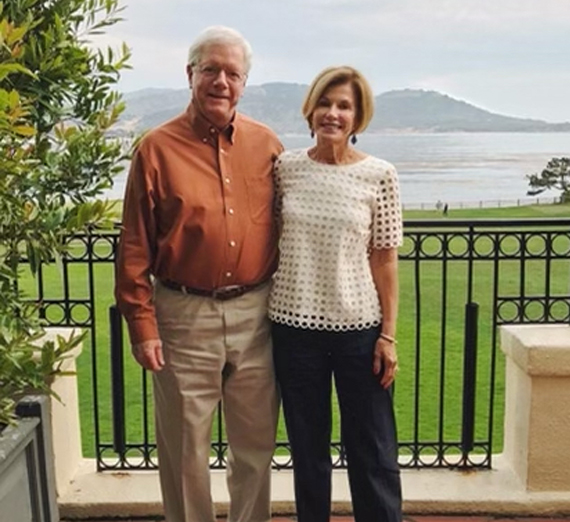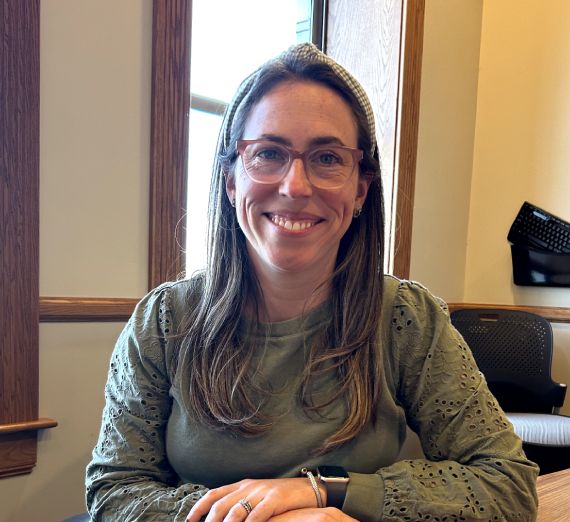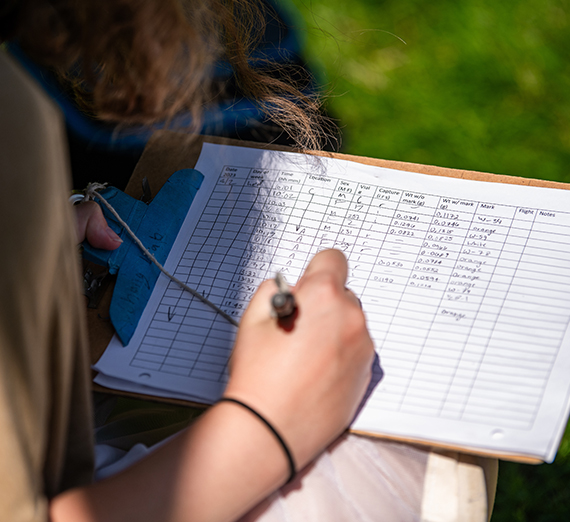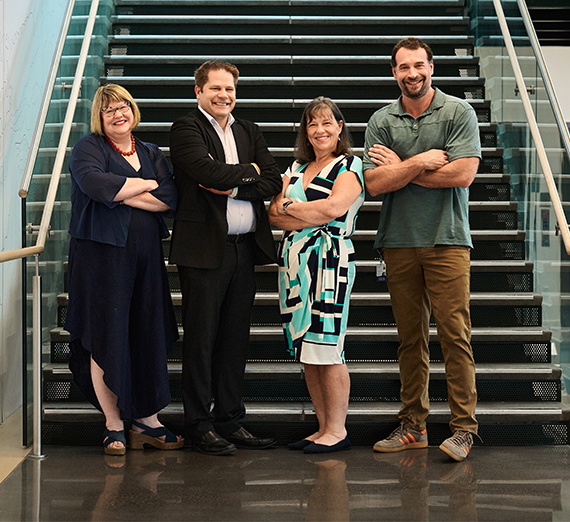Expanding the Scope of Research
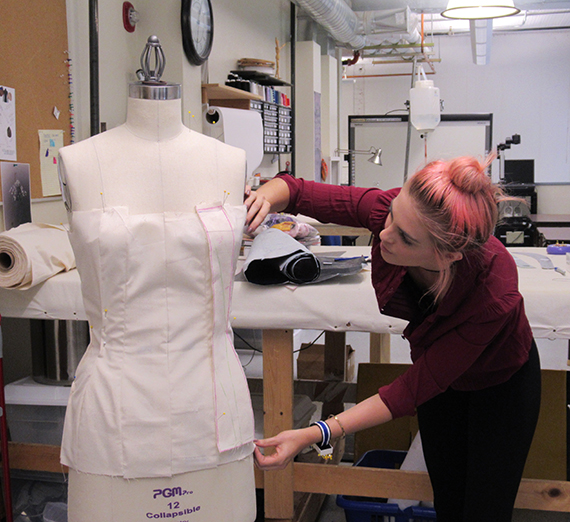
How do Latin American Indigenous organizations put the theory of decoloniality into praxis? How did socioeconomic status impact the silhouette of women’s undergarments in the 19th century? And are the majority of high school singers studying and performing songs by male composers who aren’t exactly contemporary?
These are all questions the 2018 Morris Undergraduate Research Fellows sought to answer when they submitted their applications for the program this spring. The fellowship is unlike many funded research opportunities; instead of collaborating with faculty researchers on projects already underway, these students of the arts, humanities, and social sciences instead identify a topic that is meaningful to them and then lobby a faculty member to serve as a mentor as they conduct research, analyze data, and complete a final project, which they present at the Center for Undergraduate Research & Creative Inquiry (CURCI) poster presentation over ZagFam Weekend.
The fellowship’s funders, Scott and Liz Morris, were inspired to launch the program in order to provide students outside of the hard sciences a critical opportunity to develop research skills.
“Students who major in the liberal arts often are unable to further their field of study or a particular area of interest as, let’s say, a science major can,” says Liz. “In this unsettled world in which we live, having the ability to think critically and respond with compassion are two traits housed in the liberal arts that we desperately need. We believe people who are educated in this way are the leaders the world needs most.”
Throughout the fellowship, students refine their research skills, learn how to navigate the Institutional Review Board (which evaluates research that involves human subjects), and ultimately distill the information they’ve collected into their final project. They regularly meet with their mentors, where they present the work they’ve done since the last meeting, ask questions about strategy, and identify next steps.
In addition to meeting with their mentors, this summer’s cohort also met weekly as a group with CURCI director Jeff Watson, participating in roundtable discussions about successes and challenges and offering up questions, ideas, and suggestions of how to overcome barriers.
“The roundtables have been an incredible experience for me,” says Nick Simmons ('19), who worked with Modern Languages & Literature’s Spanish Program Director Rebecca Marquis on research into decoloniality in Latin American Indigenous populations. “Having the opportunity to see weekly progress from my peers’ amazing projects was very beneficial for my own research because it gave me new study ideas and at times the needed motivation to push me through long and challenging texts.”
Andrew Kelley (‘19) and Annie Stanger (‘19) both strategically chose the Music Department’s Tim Westerhaus to serve as their mentor, not just for his enthusiasm, but also for his own critical studies. “Tim has done so much research of his own. I actually even consulted his dissertation,” admitted Kelley during one of the roundtable discussions.
Katherine Laco (‘19), who worked with Anastasia Wendlinder to analyze how Catholic parishes in the Diocese of Spokane have implemented Vatican II liturgical reforms, adds with a grin, “It’s also really helpful to have an advisor who can help make connections in the field.”
But because the research focus is the student’s and not the mentor’s, the experience has fostered a kind of collegiality between each pair. “Our mentors aren’t experts in what we’re researching; it isn’t like Tim already has all the answers,” says Kelley. “It’s been cool talking through findings with him.”
Marquis echoes that sentiment. “This has been a process of discovery for everyone. The students are learning that it’s important to do the research, to navigate through IRB, to do everything right—and in that process, they’re also learning that sometimes it’s okay not to meet personal deadlines they established up front. They learn to modify as needed.”
Watson also invited the Communication Studies Department’s Juliane Mora to the roundtables to work with the fellows on their presentation skills. Mora, who has worked with engineers, businesspeople, and students from all disciplines, guided the students through a range of presentation scenarios, stressing the importance of relating to their audiences, keying in on the nut of their research focus, and identifying the takeaway. “Lead with the undergarments—because underwear always gets attention,” she suggested to Madison Hendricks (’18), who worked with Leslie Stamoolis to study how 19th century styles evolved with the structure of foundational garments.
Although not every project culminates in a paper, each one hinges on the same foundations. Suzanne Ostersmith, who mentored Audrey Parks (’20) on her compilation of a database of dance companies in the Northwest, was equally grateful for the group’s support and affirmation. “Going around the circle, Audrey was expressing how different her project was from the others, and immediately Jeff and another professor were on it, saying but no, you have to see how it’s the same. You’re collecting data and analyzing this information, and you won’t write a paper, but you’ll end up with this book of knowledge.”
In the end, the fellowship is all about doing research the students wouldn’t necessarily do until graduate school—and maybe even giving them an edge in their graduate studies. “Results are great,” says Watson, “but the important part of this experience is learning how to be a scholar.”
- Academics
- College of Arts & Sciences

